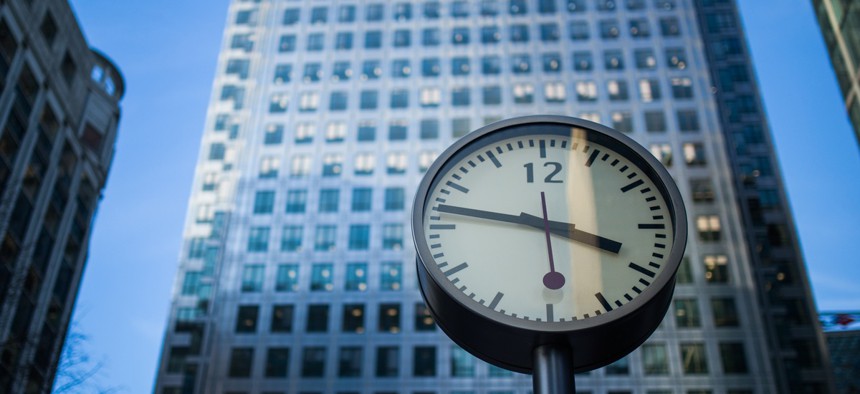
Pexels.com
Here’s the Best Day and Time to Hold a Meeting
You don't want your attendees to be tired or distracted.
Meetings are a ubiquitous feature of office life, much disparaged yet still indispensable for most organizations. But given how much time we spend in meetings—17% of the work week, according to one survey—we rarely consider the best time to schedule them.
If you want to make sure everyone can be there, the best time to meet is Tuesday afternoon, according to a study from YouCanBookMe, a UK company that makes scheduling apps for businesses. The firm crunched data from more than 2 million responses to 530,000 invitations and concluded that 2:30pm Tuesday is the time most people are free.
While Monday mornings are popular for team meetings, it’s also one of the worst times, with only one in three invitees accepting invitations to meet. (The most likely days for people to be out of the office are Monday and Friday.) Attendance rises in the afternoon, when the day’s work load has eased and people feel they’re better prepared.
Bridget Harris, co-founder of YouCanBookMe, said the company holds an all-hands meeting at 3pm Wednesdays. The afternoon slot means participants in the US can join by phone, and her employees have a handle on the week’s work.
“By Wednesday lunch time, they’ve had two days to try and figure out what they’re trying to do,” she said.
But what if you want to set a meeting time to optimize performance, not just attendance?
Research into fatigue and behavior suggests that the time of day makes a difference in how we process information. As the day wears on, we tire, and that affects how we make decisions.
In a 2011 study of parole decisions made by Israeli judges, Jonathan Levav, a Stanford business school professor, and his colleagues found that as the parole session drew closer to the judges’s breaks, either for a morning snack or lunch, the worse the outcome was for the prisoners. As they grew tired and hungry, the judges would make the most expedient decision, which was usually denying parol.
“What happens is that when people get tired and they still have to make a decision, they tend to make the decision simple,” Levav said. “Making it simple can mean taking the easy way out.”
We’re also subject to something called decision fatigue: the more decisions we make during the day, the less mental energy we’re able to bring to each new one.
“The sheer number of choices we make all day long makes it harder and harder to make good decisions,” said June Pilcher, a psychologist at Clemson University who studies the effects of stress and fatigue. “We’re just running out of resources.”
While the research suggests morning meetings—when participants are fresh—produce better results, don’t book them too early. Circadian rhythms, the natural cycle that regulates our sleep, are the reason we’re drowsy if we’re awake too late or too early. Some of us are less affected by them than others, but younger people—anyone under 25—tend to have more trouble in the mornings, Pilcher said.
Not every meeting can be scheduled in the magic hours between 9am and 11am, after the effects of sleep have worn off but before the distracting pains of hunger kick in. But if you do meet when participants are likely to be tired or hungry, you should avoid making important decisions.
Afternoon sessions should be kept short, and you might consider holding a standing meeting, which keep things moving quickly and to the point.






